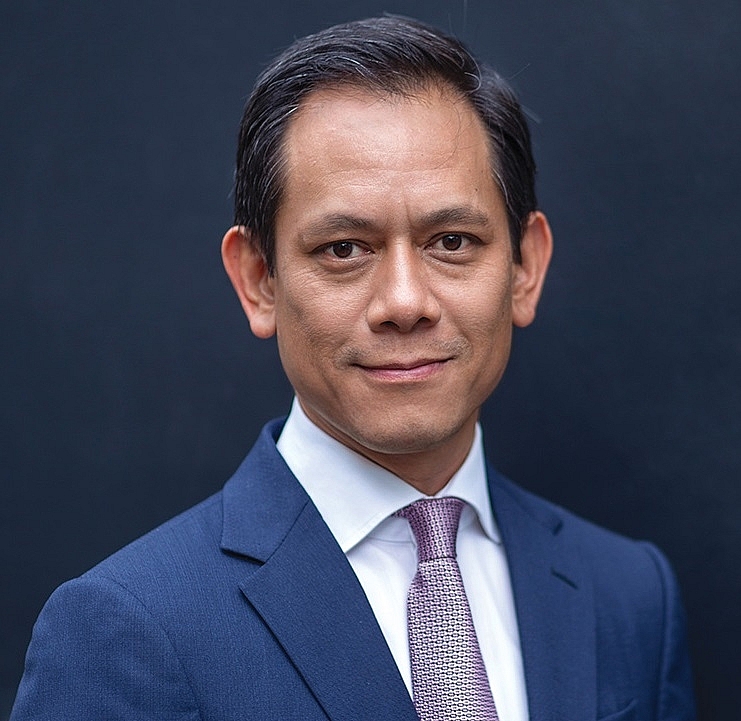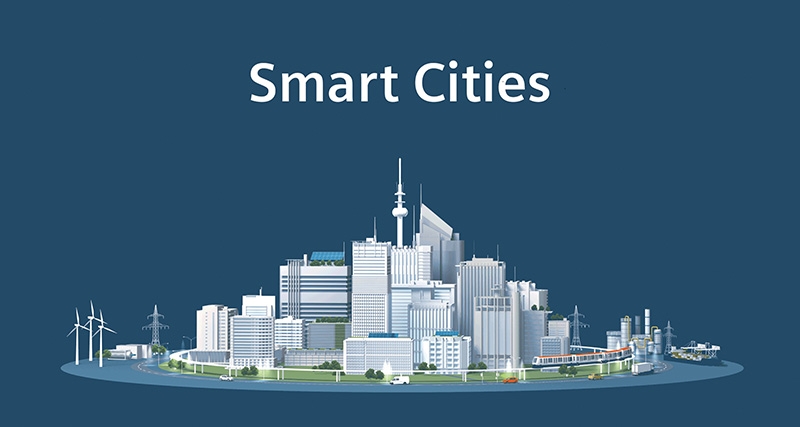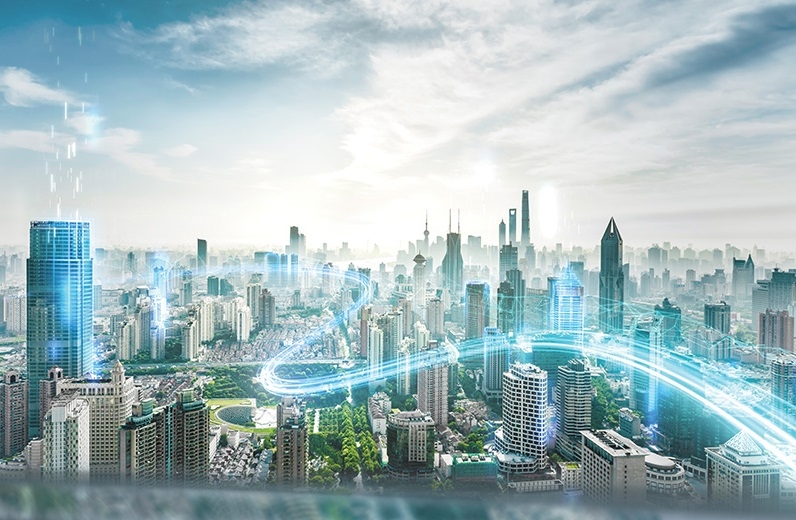Siemens can help make Vietnam’s cities smarter and more sustainable
 |
| CEO of Siemens ASEAN and Vietnam |
What are the main issues generally facing big cities today?
Population growth, climate change, ageing and deteriorating basic infrastructure, resource scarcity, digitalisation, and changing needs and expectations all place demands on the operations of a city and create new challenges for them to tackle.
The vigorous development of cities through rapid urbanisation and economic growth also presents decision-makers and urban planners with enormous infrastructure challenges. Not only is it important to guarantee a high quality of life for city dwellers, but also to ensure that metropolises remain economically competitive and that resources are handled responsibly.
Furthermore, pandemics such as COVID-19 are demanding for a safe and healthy environment to protect the wellbeing of people.
How can we address these huge issues?
The only way to cope with these challenges is that cities have to become smarter by getting more efficient. There are many major reasons to make a city smart. They can include coping with increased demand on city basic infrastructures; reducing demand on scarce resources by identifying actual needs and eliminating waste; driving further efficiency through reduced cost of service delivery; and to reduce cost to citizens, businesses, and visitors.
Going even further, smarter cities can deliver more reliable and better-connected services; empower people with information and choice; provide healthier environments and reduce pollution; drive innovation and business opportunities; and enhance quality of life while attracting human capital, business investment, and economic growth.
On top of that, digitalisation technologies can make our infrastructure smarter and thus more personalised services can be attained.
 |
| Siemens can help make Vietnam’s cities smarter and more sustainable |
How do citizens and businesses benefit from smart cities?
Smart cities will be informed, connected and inclusive of citizens, aimed at a more sustainable and resilient path and a more inclusive prosperity. The term “smart” embraces not just the technological, but also the social and human aspects of a city.
A thriving, modern city leverages ICT and a smart and resilient infrastructure to facilitate and enhance its economic growth. Smart infrastructure will make much use of the wealth of data that this produce by individual and interconnected devices.
This, in turn, has significant impact on the efficiency and capacity of infrastructure and service delivery to citizens, their economic opportunity, and overall quality of life.
Vietnam is also facing many challenges as a result of increased population and vigorous urbanisation countrywide. Many cities, such as Hanoi and Ho Chi Minh City, struggle to cope with overstretched infrastructure. What are the prerequisites for these cities to become smart?
There are four areas: digital infrastructure, smart mobility, a smart grid, and smart buildings.
Digitally enabled infrastructure, based on a foundation of electrification and automation, can drive efficiencies in services through
optimisation of operations and equipment, changing operational patterns based on demand, and managing and maintaining the systems remotely.
Mobility solutions increase the availability of infrastructure, optimise throughput and create a new quality of passenger experience through digitalisation. For instance, the Digital Railway provides a new opportunity for cities and train operators to run railways that are interactive and self-managing, and at the same time provides passengers with a new level of connectivity besides convenience and comfort when moving around.
The smart grid meanwhile provides an optimised balance of generation and demand helping to reduce the overall consumption of electricity across the development by directly regulating devices or influencing consumer behaviour.
Smart building technology will help cities to achieve the highest standards of environmental efficiency and to reduce energy demands. Smart buildings interact with people, systems, and external elements around them. They learn from past experiences and adapt to the needs of people and businesses within them by increasing comfort, efficiency, resiliency, and safety. And today there is a new need: to protect people from COVID-19.
 |
What can Siemens do to help cities in Vietnam become smarter and more sustainable?
As a trusted global company in sustainable city development and having been operating in Vietnam for nearly three decades, Siemens fully understands the challenges the country’s cities face in becoming smarter. Siemens has a unique digital offering for infrastructure needs of a city. We are working directly with cities worldwide to ensure that digital technologies are integrated into planning so it benefits immediately by reducing congestion, improving air quality, and increasing energy reliability and efficiency.
In Vietnam, we are working with the Ministry of Transport and different city governments to make transportation more efficient by implementing intelligent traffic lights and traffic management systems to regulate the flow of traffic. We believe that a widely-deployed public transportation system will be the key factor to making cities more liveable and more competitive. Our metro solutions are available to support locations such as Hanoi and Ho Chi Minh City in doing this.
Further down the road, driverless trains, driver assistance systems, or e-ticketing systems will make commuting more convenient for the urban population.
Siemens’ offerings on HVAC (heating, ventilation, air-conditioning, and room automation), and building management systems help create healthy, productive, sustainable environments and safe workplaces for people to live and work. All of these solutions have already been deployed extensively in Vietnam, and we aim to promote green solutions for data centres, clean rooms, laboratories, and other COVID-19 products in Vietnam’s market.
In terms of the smart grid, our main control centre SCADA (Supervisor Control and Data Acquisition) DMS (Distribution Management System) in Ho Chi Minh City, which is equipped by Siemens most advanced technology in the power distribution industry, is helping to remarkably improve the efficiency and reliability of the distribution network in 21 provinces and cities in the southern region of Vietnam.
The Spectrum Power SCADA/DMS system from Siemens enables grid operators to control the grid management system and the energy flow. The system can be operated locally or remotely thanks to its web-based architecture. In addition, it helps to reduce grid maintenance costs and eliminate faults faster.
You mentioned that the pandemic highlights the need for smarter and more adaptable cities. Can you elaborate on this?
The coronavirus pandemic is a new experience for every one of us. While this crisis raises many questions, it also forces us to reflect on how our cities can be more human-centric and resilient in the face of unforeseeable challenges.
Hence, our goal should be to create cities that balance environmental impact and economic growth. While natural resources continue to dwindle, data is an infinite resource at our disposal. Data is at the heart of digitalisation. Using it can help us achieve this goal by eliminating waste and saving energy and cost.
We are already doing that in buildings – and getting better at it. But leveraging data to the advantage of people in cities is still at its infancy. In the future, we envision smart infrastructure becoming all-sensing; an ecosystem that knows you and adapts to your needs, thanks to data and digitalisation. Digitalisation allows us to create a digital, adaptable twin of a city in the virtual world. We can test and simulate a city’s resiliency to events like natural disasters and pandemics. This helps us understand how adaptable it is to such events and simulate a number of responses to activate in the future.
Our world has changed forever so let us create a new normal that benefits from new uses of technology and from the positives of the experiences of lockdown. We must take the time to reflect on what we want to take forward, even recognition of what really matters in life.
Data exchange will be key to making our cities more adaptable and resilient to crises. With the right setup, the infrastructure that is most adaptable to change – be it pandemics, natural disasters, or climate change - will not only survive but also help society to thrive.
For Siemens, providing cities with the best possible products, solutions, and services is a strategically important task. And we are truly committed to helping make cities in Vietnam become smarter, and thus being more liveable and sustainable.
What the stars mean:
★ Poor ★ ★ Promising ★★★ Good ★★★★ Very good ★★★★★ Exceptional
Related Contents
Latest News
More News
- Vietnam’s pivotal year for advancing sustainability (February 19, 2026 | 08:44)
- Strengthening the core role of industry and trade (February 19, 2026 | 08:35)
- Future orientations for healthcare improvements (February 19, 2026 | 08:29)
- A cultural development pillar for the new period (February 19, 2026 | 08:22)
- Infrastructure orientations suitable for a new chapter (February 19, 2026 | 08:15)
- Innovation breakthroughs that can elevate the nation (February 19, 2026 | 08:08)
- AI leading to shift in banking roles (February 18, 2026 | 19:54)
- IFC to grant $150 million loan package for VPBank (February 13, 2026 | 09:00)
- SABECO celebrates diverse Tet Traditions (February 11, 2026 | 08:00)
- Canada backs Vietnam’s green transition with AGILE project (February 09, 2026 | 17:41)

 Tag:
Tag:



















 Mobile Version
Mobile Version